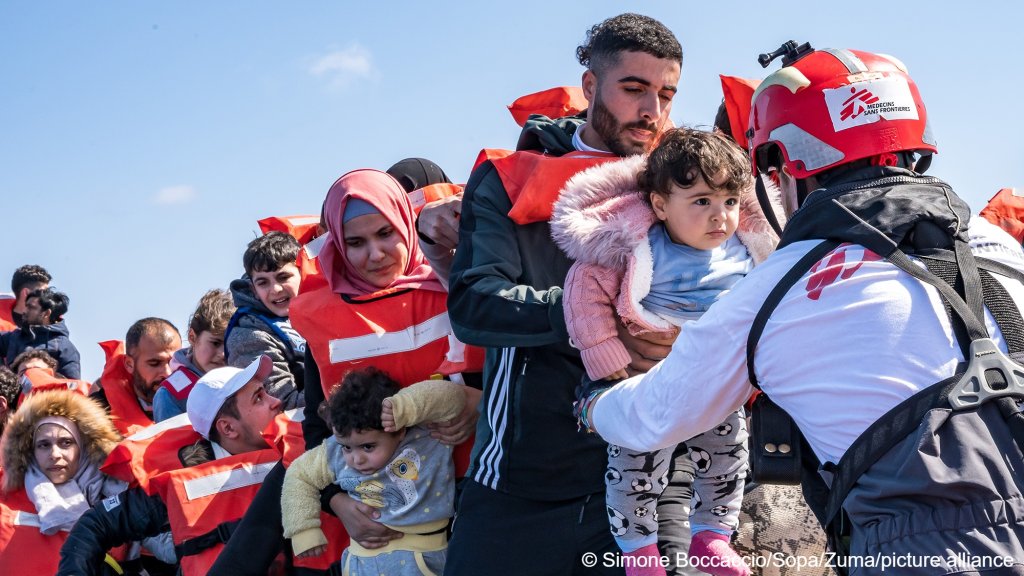Migration was one of the topics discussed during the state visit of Greek Prime Minister Kyriakos Mitsotakis to Berlin yesterday. Merz called for the reduction of secondary migration, where individuals move to Germany after initially entering the EU through Greece.
Greek Prime Minister Kyriakos Mitsotakis visited Berlin yesterday as the first European leader to be welcomed by the new German government under Chancellor Friedrich Merz.
The two heads of state, and conservative politicians, expressed support for stricter asylum rules across the European Union (EU). Merz stressed the need to curb "secondary migration from Greece to Germany," signaling the newly elected German government's harder stance on migration.
For his part, Mitsotakis appealed for mutual understanding, underscoring Greece’s frontline role in managing Europe’s external borders.
In a statement delivered to the media after their meeting, Mitsotakis said, "I am aware that the Chancellor recognizes how difficult it is for a country to be at the forefront of the migration crisis, and he also recognizes the effort to protect our national and European borders night and day."
Secondary migration
Located in south eastern Europe, bordering the Ionian Sea and the Mediterranean Sea, Greece is a primary gateway into the European Union through the eastern Mediterranean route (from Turkey), some boats have also begun arriving in Greece that set off originally from countries in North Africa, including Libya and Egypt.
Data indicates that by the end of 2024, the total number of irregular arrivals from Turkey reached 56,066. Many people who enter Greece irregularly later make their way to other EU countries such as Germany.

Secondary migration -- where a person enters one country irregularly and then moves on to another -- is difficult to track or monitor; however, under the Dublin Regulation, asylum seekers apply in the first EU country they enter.
Merz's new government has made a tougher stance on migration a cornerstone of its migration policy, introducing tighter movement controls that include rejecting asylum seekers at the border.
It was reported that in the first two days since Berlin tightened border controls, 19 people who had applied for asylum have reportedly been turned away at the border.
Read AlsoGerman Chancellor Merz rejects criticism of border controls
A humanitarian and national security issue
Stricter enforcement of the Dublin Regulation could potentially lead to increased returns of asylum seekers to Greece, placing additional strain on its already burdened asylum system.
Last month, Germany's Federal Administrative Court in Leipzig ruled that two men who face impending deportation to Greece would not face inhumane or degrading reception conditions if they were sent back. The two had reportedly moved from Greece to Germany where they lodged new asylum applications. However, German authorities deemed these inadmissible, and deportation orders to Greece were issued.
Greek's Immigration and Asylum Minister Makis Voridis said that Greece would not take back refugees or asylum seekers from Germany, adding that Greece is already hosting the European Union's highest number of refugees per capita after Cyprus.
During the state visit to Germany yesterday, Mitsotakis said that migration is not only a humanitarian issue, it is a major issue of national security: "That is why an even closer partnership between Athens and Berlin is necessary, with priority given to effective cooperation between the two states... Berlin is a city that has experienced both the division and the reunification of a nation and reminds us that the real strength of Europe is not the "walls" but the "bridges."
Read AlsoGreece says it won't accept migrant returns from Germany
